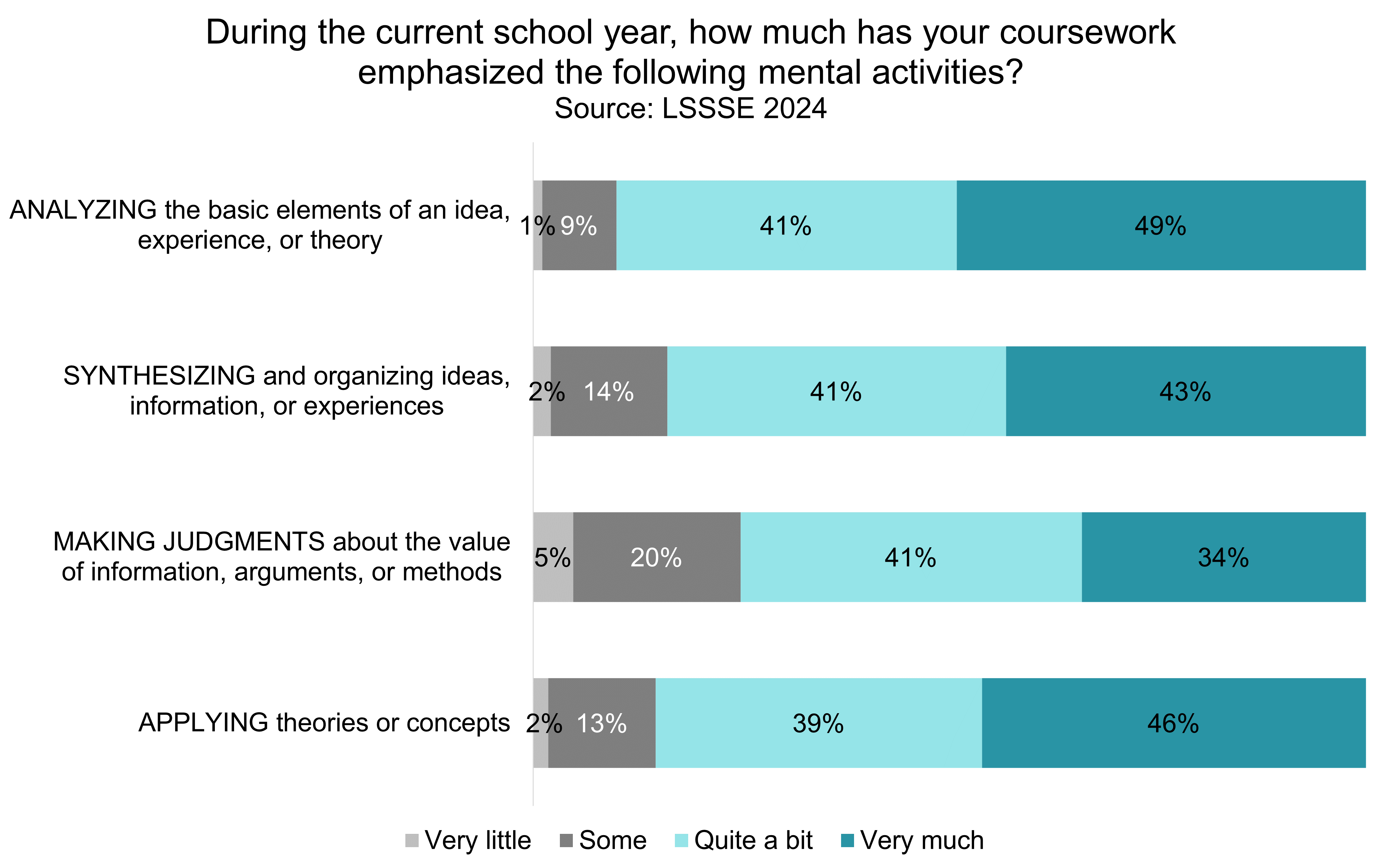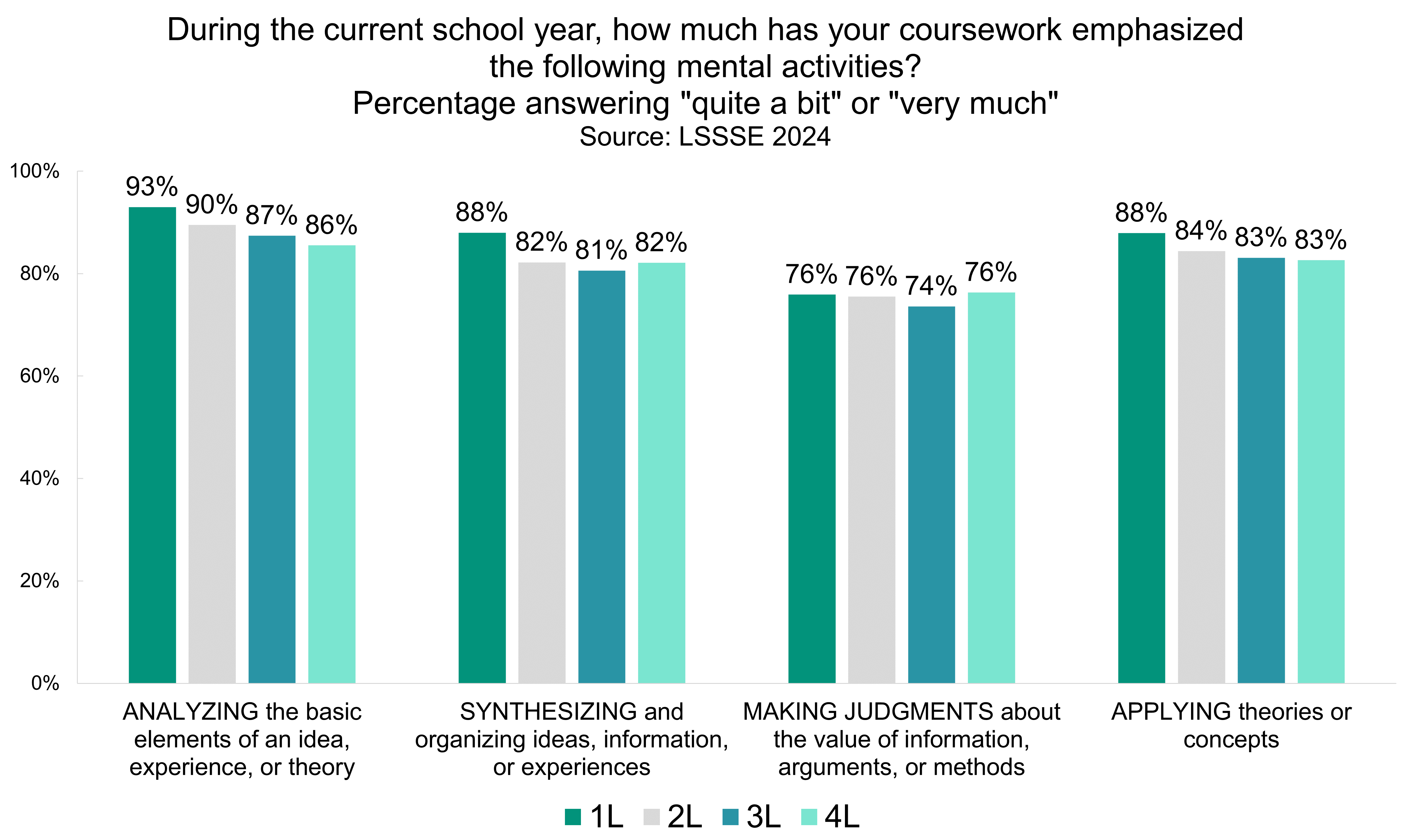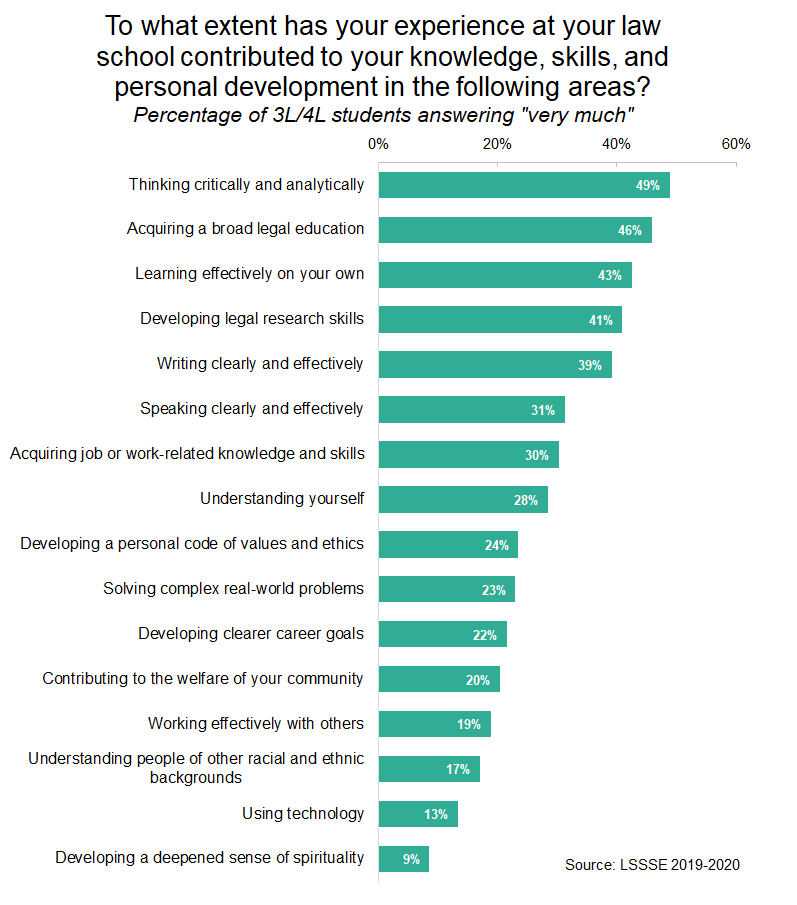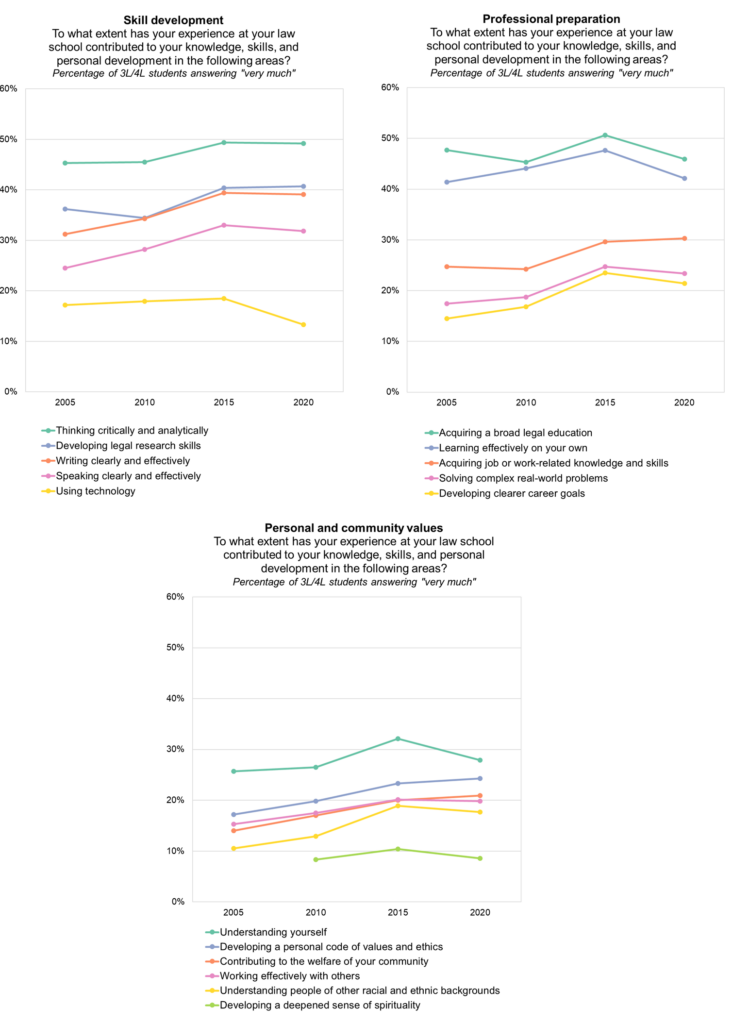Learning to Think Like a Lawyer
Learning to think like a lawyer is crucial for developing essential analytical skills and a nuanced understanding of legal principles. This process involves honing the ability to critically assess legal issues, construct persuasive arguments, and anticipate counterarguments. Learning to think like a lawyer is challenging because it requires a shift in mindset and the development of complex analytical skills. Law students must master intricate legal concepts and apply them to varied contexts, often under pressure. This involves not only understanding the law but also critically analyzing case precedents and identifying subtle distinctions. Additionally, the emphasis on precision in language and argumentation can be daunting, as even minor errors can significantly impact legal outcomes. By the time they are ready to graduate, most law students have learned to cultivate a mindset that prioritizes logical reasoning and ethical considerations, which are vital for effective advocacy. Ultimately, mastering this way of thinking not only prepares students for successful careers in law but also equips them to navigate complex societal issues with integrity and insight.
LSSSE provides a Learning to Think Like a Lawyer (LTTLL) Engagement Indicator that is a succinct metric for understanding the degree to which students are engaging in this learning process. The LTTLL Engagement Indicator combines several individual survey questions that are statistically and conceptually related to one another. This makes Engagement Indicators meaningful for comparisons because they reduce the risk of relying too heavily on any individual survey question. The LTTLL Engagement Indicator combines the following questions from the main LSSSE survey:
During the current school year, how much has your coursework emphasized the following mental activities?
- Analyzing the basic elements of an idea, experience, or theory, such as examining a particular case or situation in depth, and considering its components
- Synthesizing and organizing ideas, information, or experiences into new, more complex interpretations and relationships
- Making judgments about the value of information, arguments, or methods, such as examining how others gathered and interpreted data and assessing the soundness of their conclusions
- Applying theories or concepts to practical problems or in new situations
The response options are “very much,” “quite a bit,” “some,” and “very little.”
Of the four cognitive activities, students are most heavily engaged in analyzing the basic elements of an idea, experience, or theory. Ninety percent of law students do this often or very often. Next comes applying theories or concepts to practical problems or in new situations (85%) and synthesizing and organizing ideas, information, or experiences into new, more complex interpretations and relationships (84%). Three-quarters (75%) of law students frequently make judgments about the value of information, arguments, or methods, such as examining how others gathered and interpreted data and assessing the soundness of their conclusions.

There are some interesting differences in how students respond to these questions across class years. 1L students are more likely to frequently engage in all the LTTLL mental activities compared to 2L and 3L students. For example, 93% of 1L students frequently analyze the basic elements of an idea, experience, or theory, compared to only 86% of 3L students. Generally, 1L students are somewhat more engaged with the law school experience and more enthusiastic overall relative to their more seasoned peers, so that might explain this discrepancy. However, it is also possible that 3L students have become so fluent with these processes that they do not necessarily note them in isolation from the type of legal thinking which has become automatic to them.

By applying legal theories and concepts to real-world scenarios, aspiring lawyers learn to navigate the intricacies of the law, develop strategic approaches, and ultimately advocate effectively for their clients. This comprehensive skill set is essential for rigorous legal thinking and practice. LSSSE provides customized tools to gauge how well your students are learning these crucial mental processes as well as ways to compare your students to selected peers and national averages. Contact us to learn more.
Knowledge, Skills, and Personal Development in Law School
What does one learn in law school? In this post, we describe the areas of academic, professional, and personal development that graduating law students feel were most strongly influenced by their law school experience.
Students nearing graduation (full-time 3L students and part-time 4L students) in 2020 were most likely to say that they developed “very much” in terms of their ability to think critically and analytically (49%) and in acquiring a broad legal education (46%). Research, writing, and speaking skills were also key areas of academic and personal growth. Fewer students responded that they developed “very much” in interpersonal skills such as working effectively with others (19%) and understanding people who are different from themselves (17%).

From 2005 to the present, graduating law students have been remarkably consistent in the areas in which they say they have developed the most. Between 40% and 50% of law students over the last fifteen years feel they have acquired a broad legal education and learned how to learn effectively on their own. However, only around 20% of law students felt they had learned very much both about solving complex real-world problems and about developing clearer career goals, although these numbers have climbed over time. In terms of personal development and community values, usually about three in ten graduating students say they have made “very much” progress in understanding themselves, but only between 10% and 20% of students have made similar gains in understanding people of other racial and ethnic backgrounds. However, this area of interpersonal development has also increased noticeably over the last fifteen years.

Learning How to Think Like a Lawyer
A legal education strives to teach law students how to "think like a lawyer." Although students may not articulate their reasons for attending law school in exactly this way, the rigor of the law school curriculum certainly challenges students to develop mental flexibility and analytical critical thinking skills. LSSSE asks students to comment on the degree to which their coursework emphasizes the development of several mental activities, namely memorizing, analyzing, synthesizing, making judgments, and applying ideas to new situations.
For each skill, more than half of law students indicated that their school emphasized developing that skill "quite a bit" or "very much." Analyzing the basic elements of an idea, experience, or theory was a nearly universal skill with ninety percent of 2020 LSSSE respondents reporting high emphasis in their coursework. Nearly as many (85%) said their law school placed a high emphasis on applying theories or concepts to new situations. About 83% felt that their coursework emphasized synthesizing ideas into new interpretations, and about 74% said the same for making judgments about the value of information. Memorization was the least emphasized mental activity, but still, 61% reported that their coursework places a high emphasis on memorizing facts, ideas, or methods.

1L students were slightly more likely than 3L students to say that their coursework emphasized the development of any given mental activity. This may be because 1L students are still in the process of adjusting to the rigors of a legal education and thus are more likely to see their educational challenges as formidable. It may also reflect the slight gradual decline in satisfaction and enthusiasm that occurs as law students progress through their degree programs.

Interestingly, the ranking of the five mental activities has remained constant since at least 2005. The longitudinal LSSSE data show a slight increase in the proportion of students who report that their schools place a high emphasis on each mental activity from 2005 to 2015 and then a slight decrease or plateau for each activity from 2015 to 2020.

Clearly, law school remains a challenging endeavor in that it places a strong emphasis on developing higher order mental faculties including analyzing the basic elements of an idea, experience, or theory, applying theories or concepts to new situations, and synthesizing ideas into new interpretations. Only a tiny percentage of students report that their legal education has placed very little emphasis on any of these skills. This suggests that law school is delivering on the promise to teach students how to think like a lawyer.



